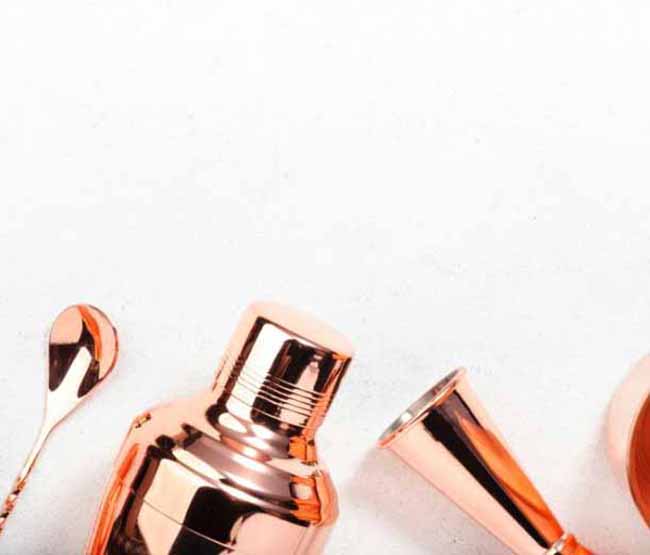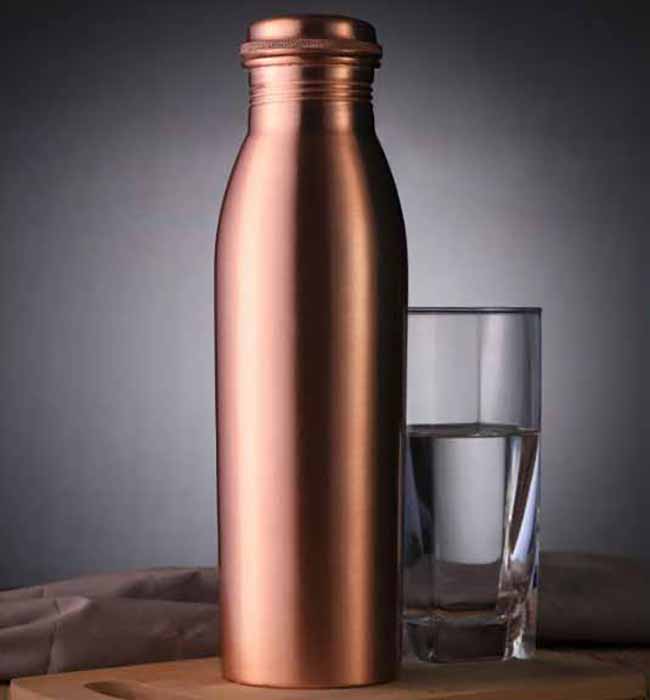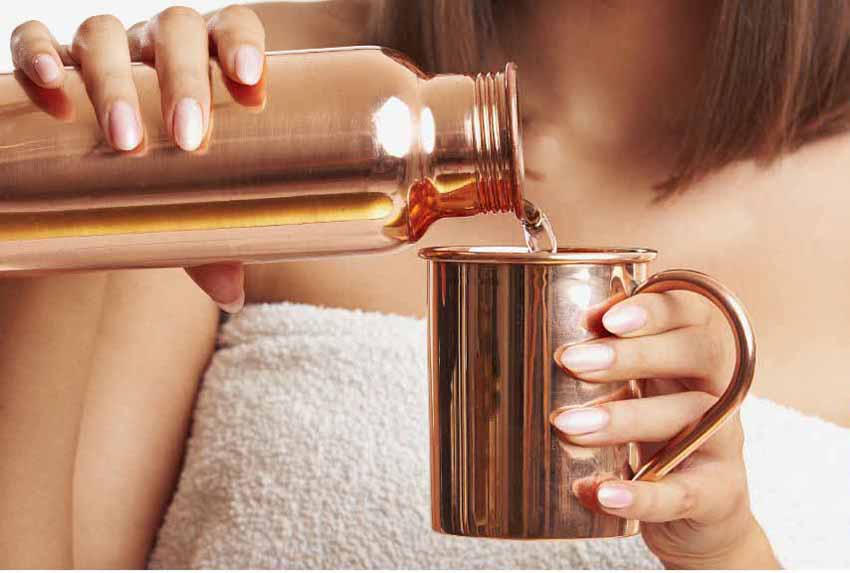You should not drink boiling hot water from a copper bottle. Although copper bottles are popular for their health benefits, boiling hot water can leach excessive copper into your water.
However, if you know the right way to use a copper water bottle, you can get immense benefits from copper water. In this guide, we’ll clear up any doubts and provide you with all the necessary information regarding “Can we drink hot water from copper bottles? How to use it effectively? And what precautions to take to maximize its benefits?”
Sounds promising? Let’s get into the details!
Is Drinking Hot Water From A Copper Bottle Harmful?
Yes, drinking hot water from a copper bottle can be harmful. Although copper has health benefits when used correctly, hot water can make too much copper mix into the water. This can cause health issues if you consume it often.
When you store water in a copper bottle at room temperature for 6-8 hours, small amounts of copper dissolve into the water. It’s a controlled condition, and the leaching is safe. It’s also beneficial as it provides antibacterial properties and essential trace minerals.
When boiling hot water is added to a copper bottle, the heat increases the reaction rate of copper and water. This rapid leaching can release higher amounts of copper than is safe for consumption.
Experts state that consuming up to 1.3 milligrams of copper daily from water stored in a copper bottle is considered safe. The World Health Organization (WHO) has established that the maximum allowable concentration of copper in drinking water is 2 milligrams per liter.

Is Excessive Copper Water Consumption Harmful?
Yes, drinking excessive copper water can lead to copper poisoning and, eventually, different health problems. Below are some potential risks.
1. Copper Toxicity
Consuming too much can lead to copper toxicity. Excessive copper levels in the body can lead to a range of symptoms, such as:
- Diarrhea
- Vomiting
- Muscle pain
- Jaundice
In more severe cases, prolonged exposure to toxic levels of copper may result in:
- Kidney failure
- Liver damage
- Heart failure
- Death
2. Digestive Disturbances
If too high levels of copper ions leach into the water, it may cause digestive issues like stomach cramps, gas, or diarrhea. The chance is higher for people who are sensitive to copper or those consuming more than the recommended daily intake of copper.
3. Contamination Due to Poor Maintenance
Copper bottles require regular and thorough cleaning to prevent the buildup of bacteria, mold, or other contaminants. Improperly cleaned bottles can result in polluted water, which may lead to gastrointestinal infections or other health issues. Use mild, non-abrasive cleaning agents to maintain the bottle’s hygiene.
4. Allergic Reactions
Some people are allergic to copper. In such cases, even small amounts of copper-infused water can cause allergic responses, including skin rashes, redness, or irritation. If you suspect an allergy, it’s best to avoid copper bottles altogether.
5. Chemical Reactions with Other Elements
Copper can react with other elements in the water, such as minerals and metals and form compounds that are harmful. For example, when copper interacts with iron, it can create free radicals. These free radicals can damage cells, contribute to oxidative stress, and potentially accelerate aging or other health conditions.
Which Drinks Should You Avoid To Drink From A Copper Water Bottle?
Copper can interact with acidic or alkaline liquids and cause the metal to leach into the contents in excessive amounts. To avoid this, try not to store these drinks in your copper bottle:
Sour Foods
Avoid storing sour foods like pickles (mango or lemon), vinegar-based pickles, jams, and sauces in copper containers. When these foods are in contact with copper, it can result in reactions that may cause weakness or nausea.
According to the US State Department, copper should not come into contact with foods that have a pH level below 6.0. When acidic foods come in contact with copper or copper alloys, the metal can leach into the food, making it unsafe.
Dairy Products
Storing milk, yogurt, or any other dairy product in copper bottles is harmful. Copper can interact with the minerals and vitamins in milk and cause foodborne illnesses. In some cases, this reaction may lead to discomfort, nausea, or nervousness.

The Best Ways To Use Your Copper Water Bottle
Here are some of the best ways to use your copper bottle to maximize its advantages.
Storing Water in Copper Bottles
It is recommended to store water in a copper bottle for about eight hours.
During this time, small amounts of copper ions dissolve into the water. This water acts as a natural antibacterial agent. It helps purify the water and makes it safer to drink by eliminating harmful microorganisms.
However, make sure you don’t exceed the six to eight-hour storage period, as too long-term exposure can lead to excessive copper leaching.
Storing Copper Bottles in the Freezer
Do not put your copper water bottle in the freezer. Doing so could damage the bottle and cause the metal to react with the liquid inside.
The natural process that helps purify your water works best at room temperature, so freezing it will stop that from happening. Ayurvedic practices recommend consuming water at room temperature or lukewarm instead of cold water.
When your body is digesting food, it needs to work smoothly. Room-temperature water helps with digestion. But if you drink cold water, it can slow things down by freezing the enzymes in your gut. This can make digestion harder and can leave toxins in your body.
Cleaning Copper Bottles
When cleaning copper bottles, avoid harsh chemicals. Natural cleaning agents like vinegar, lemon, and salt are highly effective and safe for maintaining your copper bottle.
Conclusion
Hopefully, you’ve got your answer to the question- can we drink hot water from copper bottles?
While drinking hot water from a copper bottle isn’t inherently harmful, you must use copper bottles properly to avoid potential risks. Excessive copper exposure can lead to toxicity and digestive issues.
To safely enjoy the benefits, avoid storing hot water in copper bottles for extended periods.

